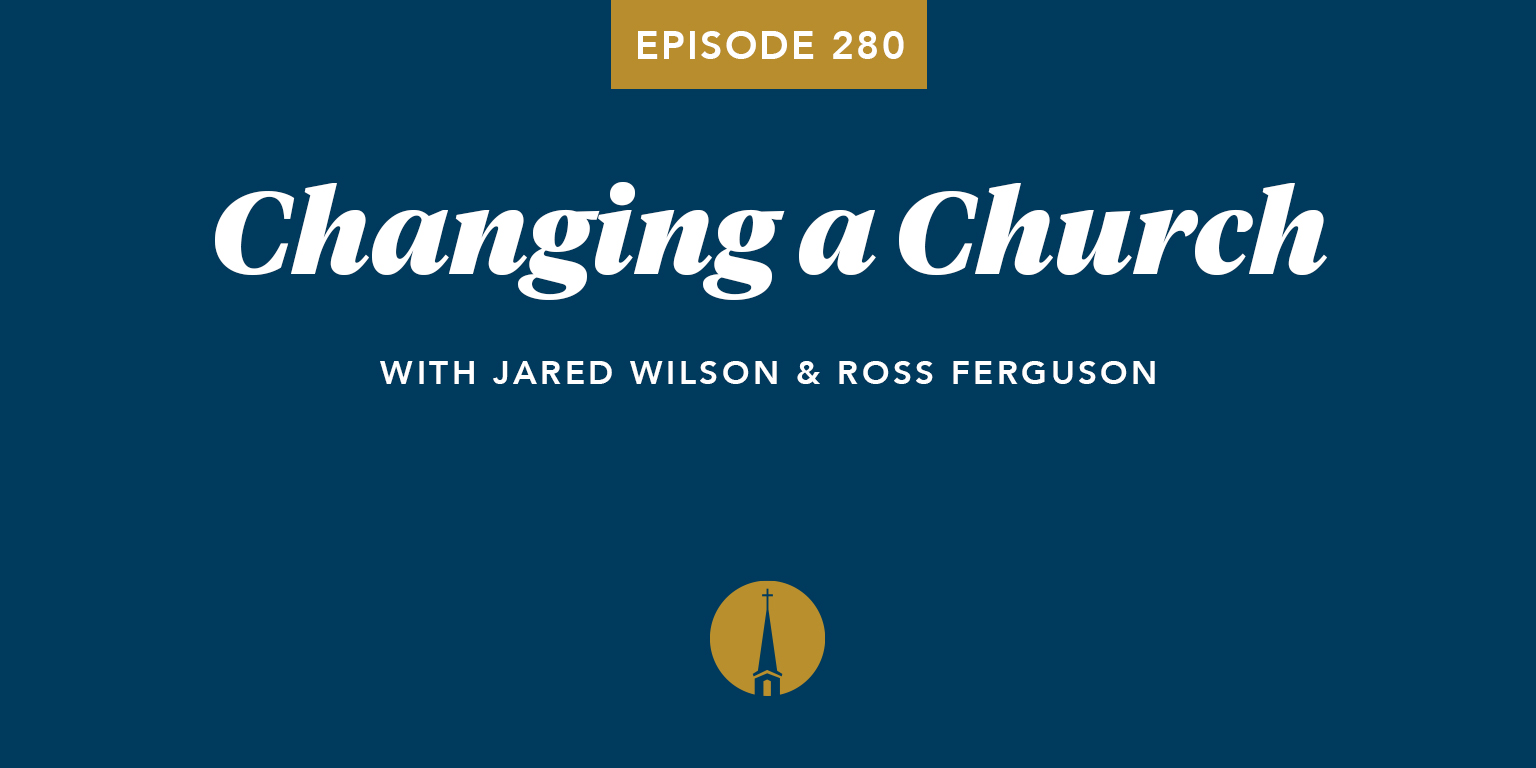
One of the most frequent questions we get relates to how to go about leading change in a church. In this episode of the FTC Podcast, Jared Wilson and Ross Ferguson discuss the potential for negative change in a church — how it happens and how to prevent it — and the process for leading positive change in a church.

